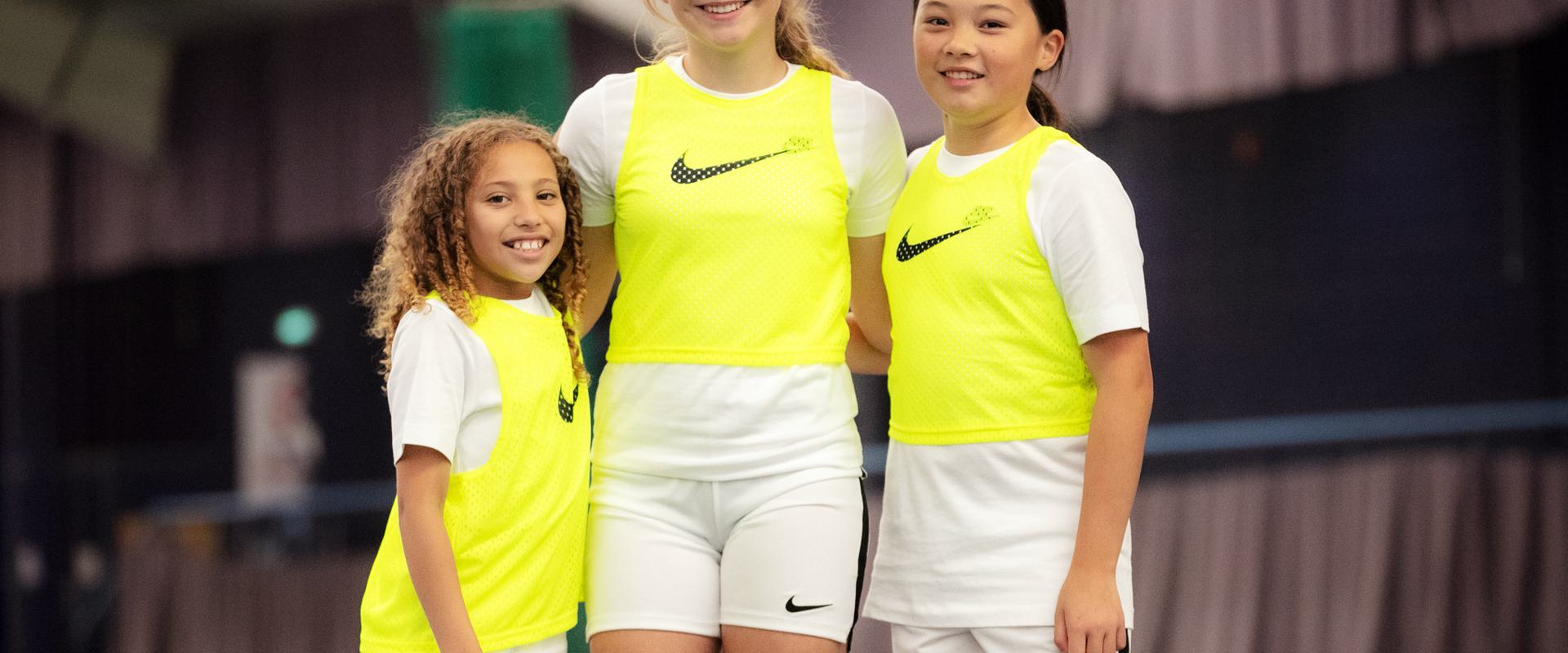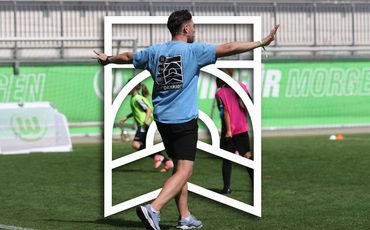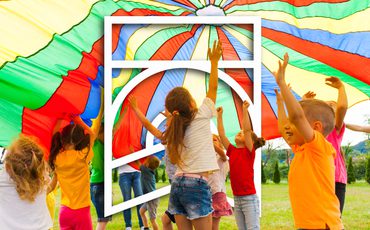
Should Your Child Play Up an Age Group?
with Gordon MacLelland
As a result parent frustration is rising as they fear their child is not progressing as they should be and a worry that the fun will go out of it for their children as they are not appropriately challenged. Many parents are sold the dream of playing up and playing with older and more talented children to help aid their development and there are some occasions where this may be beneficial to all parties.
The Appeal of Playing Up
When we hear that our child is ‘special’ or ‘talented,’ it can stir a broad range of emotions. ‘Wow, my child is really special! … of course he/she is; we’ve got great genes!’ ‘Maybe my child really has the potential to play at the highest level.’
We all love to hear good news about our children and no parent will tell you that they hate hearing good news about their own child. However, we need to check the motivations behind some of these compliments. Is it merely to improve an older team, help fuel a coach’s ego, win more matches or is it truly in the best interests of your child?
I often say that football scouts hovering the fields of U7-U10 football matches have the easiest job in the world in telling parents that their children are talented and maybe good enough for academy football. However, that is where their involvement ends, without any further support to the parent who suddenly sees the glittering lights of Hollywood. A small exaggeration but parental thought and actions may well start heading in this direction.
These thoughts and ambitions for our children can be very powerful and even seductive at times. Our children’s sporting success can validate us as parents(even though it shouldn’t) in some primal fashion while also offer an even brighter and more accomplished career in sports than we had, from which we take great pleasure. And, it can be simply a joy to see our children embrace their sport accomplishments.
Playing up can also generate real concerns such as: ‘I worry that she or he might get hurt.’ Or, ‘I worry that emotionally she or he is not ready to be exposed to older children?’
‘Maybe the older children will use language that I am not comfortable with for my child and perhaps I am concerned that my child will lose confidence from not having as much success.’ ‘What happens if my child loses their friends in there school year as they are not socialising with them as much?’
Based on these various viewpoints, how do you decide what is right for your child?
Social Considerations
As a general rule, particularly for prepubescent, primary school children, it is extremely important that they develop friendships. Friendships and competency development (skills of learning the game, etc) are the two most critical objectives of latency (ages 6-12). Playing up often places our children into new groups of older kids. They may see their friends less and feel less connected to what may have been a very supportive social network. In effect, the new and allegedly improved schedule and atmosphere can potentially alienate our kids from their long-standing, critically important friendships.
We know that one of the biggest reasons that children play sport is to have fun and socialise with their friends so please bear this in mind when making such decisions. Are you making them in your own best interests or in the best interests of your child? It is worth reflecting on this question every once in a while for all aspects of their sporting experience.
Burnout and Injury
There are other risks such as burnout and injury. More serious and competitive sport for a young athlete has the potential to transform the game from fun to a job. With less fun, there is a risk of burnout. Practice times and game schedules are likely to be longer and more intense. When our children play with bigger, stronger and faster kids, they are placing greater stress on their developing bodies, increasing the risk for injury. In particular, children have more growth cartilage than adults, making them more vulnerable to injury. Fusion of bones in the elbows and shoulders can occur in later adolescence, making playing up at a young age, a greater risk for fractures or potential growth impediments.
The Argument for Playing Up
All of this said, there are still arguments made for playing up. ‘My child is so big that he might hurt the other children on his team if he isn’t playing up.’
We know that a number of sports and countries across the world use the bio-banding method and in New Zealand rugby teams can be picked on physical size and weight.
‘I worry my child may quit playing sport because she is so much better than everyone else, that she is getting bored.’ Or, ‘Why wouldn’t you give your child a chance to see how good they can be and play for a more demanding program and knowledgeable coach?’
These are compelling statements and may be true for a select few, but given the risks mentioned above, it is generally a safer course to avoid playing up. For those bigger, more talented athletes, staying with their peers and learning how to be the best player and a leader can be a life-long asset for a developing young person. They can learn how to make others around them better, so that when they are surrounded by better players as they grow older, they are versatile as a team player.
The Final Call
Developing talent is a delicate balance of meeting athletic demands within a strong and supportive environment. In environments that celebrates a win-at-all cost mentality and the drive for instant gratification, we may actually be positioning our children to be better and more balanced athletes over time if we keep them engaged in their own peer groups until they reach their teenage years when their bodies and minds are more able to handle the greater demands of more competitive sport.
Contributor:

Gordon MacLellands
Gordon is the CEO and founder of 'Working with Parents in Sport.' After 20 years as a teacher and coach to all age levels from U7-adults, Gordon set up Working with Parents in Sport ‘to support organisations, parents and coaches in working together to provide children with the best possible sporting experiences’. He is the author of three books, ‘Two Hats’ – a book for parent coaches who are coaching or thinking of coaching their own children, ‘Great Sports Parenting’ – A pocket guide for parents of children in sport and ‘Engage’ – A coaches guide to building positive relationships with parents. His clients include over 10 National Governing Bodies worldwide, the Youth Sports Trust, UK Coaching and he has been a keynote speaker at leading conferences all over the world.
Comments
Related Pages


